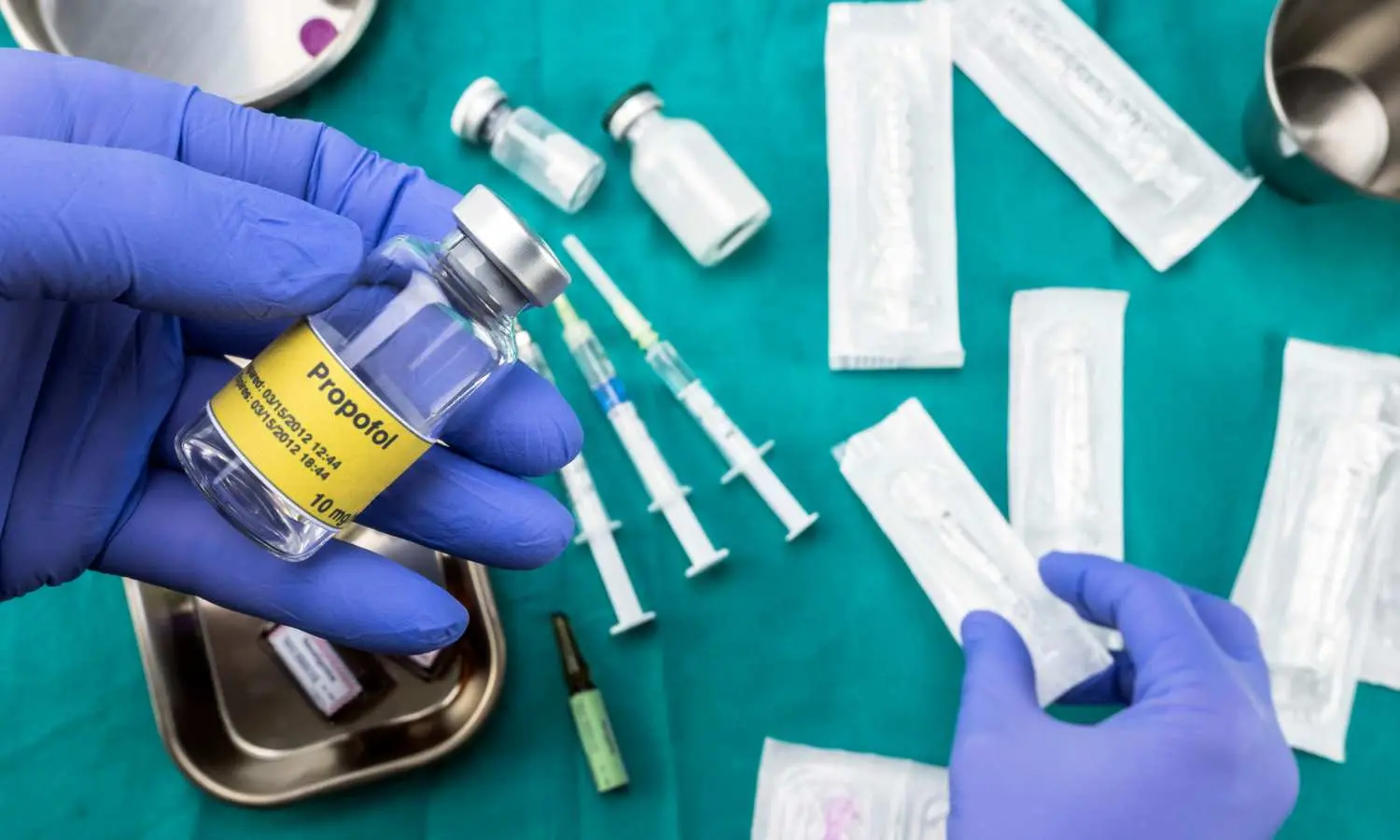- Home
- Medical news & Guidelines
- Anesthesiology
- Cardiology and CTVS
- Critical Care
- Dentistry
- Dermatology
- Diabetes and Endocrinology
- ENT
- Gastroenterology
- Medicine
- Nephrology
- Neurology
- Obstretics-Gynaecology
- Oncology
- Ophthalmology
- Orthopaedics
- Pediatrics-Neonatology
- Psychiatry
- Pulmonology
- Radiology
- Surgery
- Urology
- Laboratory Medicine
- Diet
- Nursing
- Paramedical
- Physiotherapy
- Health news
- Fact Check
- Bone Health Fact Check
- Brain Health Fact Check
- Cancer Related Fact Check
- Child Care Fact Check
- Dental and oral health fact check
- Diabetes and metabolic health fact check
- Diet and Nutrition Fact Check
- Eye and ENT Care Fact Check
- Fitness fact check
- Gut health fact check
- Heart health fact check
- Kidney health fact check
- Medical education fact check
- Men's health fact check
- Respiratory fact check
- Skin and hair care fact check
- Vaccine and Immunization fact check
- Women's health fact check
- AYUSH
- State News
- Andaman and Nicobar Islands
- Andhra Pradesh
- Arunachal Pradesh
- Assam
- Bihar
- Chandigarh
- Chattisgarh
- Dadra and Nagar Haveli
- Daman and Diu
- Delhi
- Goa
- Gujarat
- Haryana
- Himachal Pradesh
- Jammu & Kashmir
- Jharkhand
- Karnataka
- Kerala
- Ladakh
- Lakshadweep
- Madhya Pradesh
- Maharashtra
- Manipur
- Meghalaya
- Mizoram
- Nagaland
- Odisha
- Puducherry
- Punjab
- Rajasthan
- Sikkim
- Tamil Nadu
- Telangana
- Tripura
- Uttar Pradesh
- Uttrakhand
- West Bengal
- Medical Education
- Industry
Opioid-free propofol anesthesia may reduce postoperative nausea and vomiting after thyroid and parathyroid surgery: Study

A new study published in the journal of Anaesthesia found that patients having parathyroid and thyroid surgery underwent less postoperative vomiting and nausea when under opioid-free propofol anesthesia. The use of opioids for perioperative analgesia is common. Also, the postoperative hyperalgesia and increased analgesic consumption may be linked to the intraoperative administration of high bolus doses or continuous infusions of powerful opioids. Postoperative nausea and vomiting (PONV), extended sedation, ileus, and urine retention are examples of opioid-related side effects that might postpone the recovery and release or result in an unplanned return to the hospital. After thyroid and parathyroid surgery, postoperative nausea and vomiting are common and are linked to poorer patient outcomes. Thereby, Dan Wang and colleagues undertook this study to analyze if opioid-free propofol anesthesia would be less likely to cause postoperative nausea and vomiting in patients having who have undergone these operations when compared to opioid-inclusive propofol anesthesia.
At two medical facilities in mainland China, this research enrolled adult patients slated for thyroid and parathyroid surgeries. The patients were randomized 1:1, stratified by study location and sex, to either the opioid-inclusive group (sufentanil and propofol) or the opioid-free group (esketamine, lidocaine, dexmedetomidine, and propofol). Bispectral index 45 to 55 was reached by titrating propofol infusions and the patients were given multimodal analgesia with paracetamol and flurbiprofen axetil as well as prophylactic treatment for nausea and vomiting with dexamethasone and ondansetron. The prevalence of postoperative vomiting and nausea in the first 48 hours following surgery was the main result.
Out of the total 557 people nearly 394 individuals were deemed eligible for this study. The opioid-free anesthesia group (10/197, 5%) had a lower incidence of postoperative nausea and vomiting in the first 48 hours after surgery than the opioid-inclusive group (47/197, 24%). Furthermore, fewer instances of hypotension and desaturation following tracheal extubation, as well as greater patient satisfaction, were associated with opioid-free propofol anesthesia.
The opioid-free group faced a small delay in the time to tracheal extubation. The 30-day results and postoperative pain ratings for the two groups were comparable. Overall, the findings of this study found that the incidence of postoperative nausea and vomiting following thyroid and parathyroid operations was much lower when propofol anesthesia was opioid-free. Despite somewhat delayed tracheal extubation, the opioid-free regimen also resulted in lower rates of hypotension and desaturation, fewer rescue anti-emetics and increased patient satisfaction.
Source:
Wang, D., Sun, Y., Zhu, Y., Shan, X., Liu, H., Ji, F., & Peng, K. (2024). Comparison of opioid‐free and opioid‐inclusive propofol anaesthesia for thyroid and parathyroid surgery: a randomised controlled trial. In Anaesthesia. Wiley. https://doi.org/10.1111/anae.16382
Neuroscience Masters graduate
Jacinthlyn Sylvia, a Neuroscience Master's graduate from Chennai has worked extensively in deciphering the neurobiology of cognition and motor control in aging. She also has spread-out exposure to Neurosurgery from her Bachelor’s. She is currently involved in active Neuro-Oncology research. She is an upcoming neuroscientist with a fiery passion for writing. Her news cover at Medical Dialogues feature recent discoveries and updates from the healthcare and biomedical research fields. She can be reached at editorial@medicaldialogues.in
Dr Kamal Kant Kohli-MBBS, DTCD- a chest specialist with more than 30 years of practice and a flair for writing clinical articles, Dr Kamal Kant Kohli joined Medical Dialogues as a Chief Editor of Medical News. Besides writing articles, as an editor, he proofreads and verifies all the medical content published on Medical Dialogues including those coming from journals, studies,medical conferences,guidelines etc. Email: drkohli@medicaldialogues.in. Contact no. 011-43720751


